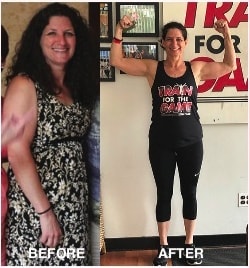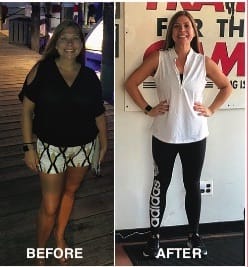Whether in the locker room or on the sidelines, it seems like everyone in the world of youth sports is talking about the power of protein. This nutrient is found in food and, increasingly, in supplements, bars and shakes marketed to young athletes. Are these magic potions that fuel better performances on the court or field or just a gimmick?
Here are three things young athletes, their parents and coaches need to know about protein.
1. Protein is an important part of a balanced diet.
Protein is a nutrient that helps build muscle and create new tissue. It’s an important building block for developing strength and peak performance for young athletes.
Although youth athletes may need more protein than less-active youth, most get plenty through a healthy diet. It’s a myth that athletes need a massive daily intake of protein to build large, strong muscles.
“Young athletes benefit most from simple, healthy eating that provides the right balance of protein, carbohydrates and fat to support normal growth and maximize energy for their sport,” UNC Health registered dietitian Elizabeth Watt says. “I typically recommend, out of their total calorie intake, about 20 percent of calories should come from protein.”
An individual’s exact needs will vary, but the Recommended Dietary Allowance (RDA) is a good guideline for how much of a certain nutrient a healthy individual needs daily. The RDA for protein is 46 grams for teenage girls and 52 grams for teenage boys per day.
A 3-ounce piece of chicken has 24 grams of protein, one cup of Greek yogurt has 18 to 22 grams of protein, and one egg has 6 grams of protein. So, if your child has a two-egg omelet for breakfast, a cup of Greek yogurt with berries for a snack and chicken with dinner, they have consumed enough protein.
2. The best source of protein is from real foods—not shakes or protein bars.
Whenever possible, protein should come from real food. “I always say food first,” Watt says.
High-quality protein can be found in lean meats such as chicken or beef; fish; eggs; dairy such as milk, yogurt, soy milk, cheese and cottage cheese; beans and legumes; and nuts and nut butters. Spinach is also a good source of protein.
If your child is not getting enough protein from real foods, you can supplement with a protein shake. However, not all protein powders are created equal. Make sure whey or a plant-based protein source is the first ingredient listed on the nutrition label. Avoid unnecessary fillers and additives. Ideally, any shake has less than 2 grams of sugar per serving.
A whey protein powder that does not have a lot of additives or sugar is fine, Watt says. “You can blend that into a smoothie,” Watt says. “Soy-based protein powder is also good for muscle rebuilding. Watch out for added sugars in the shakes, but if you are not having much added sugar throughout the day, it’s not a huge concern.”
Be careful when it comes to protein bars, though.
“Sometimes they can be glorified candy bars, so watch out and read food labels on those,” Watt says. “There are a lot of added sugars in them (keep it below 10 grams of sugar). If you’re out running for an hour, you might need something like that to help bring the blood sugar back up and repair the muscles, but sometimes there’s just so much extra sugar that it is not really beneficial.”
They can also be high in calories.
3. Eat protein at every meal.
Distribute protein consumption throughout the course of the day instead of waiting until dinner to have a big piece of meat, Watt says.
“To get some protein at breakfast, make oatmeal with milk and throw some nuts in there, or make a smoothie that has yogurt and milk in it. Then have a salad and add cheese and chicken to it for lunch,” Watt says. “Eat a lean piece of meat at dinner.”
Youth athletes should eat five or six balanced meals and snacks each day. Each meal should include complex carbs (brown rice, whole-wheat pasta), lean protein (boneless, skinless chicken breast), healthy fat (avocado), fruits and vegetables.
Watt says a good rule of thumb is to consume 0.7 grams of protein per pound of body weight for youth athletes, which aids in recovery and rebuilding of muscle after activity.
“If you’re not consuming enough calories throughout the course of your day, your body’s going to use protein that’s stored in your muscles as its fuel source,” Watt says. “So, you could be doing all this great exercise, but if you’re not eating enough protein to help rebuild and repair those muscles, your body’s just going to break them back down again as a fuel source.”



